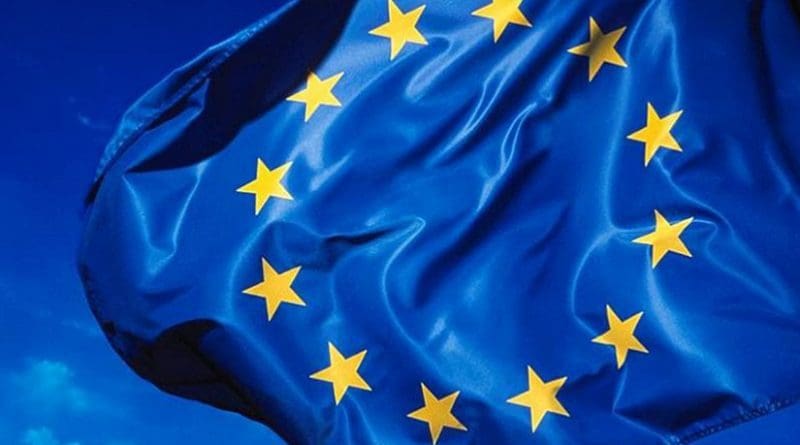EU Court Ruling Clarifies Online Platforms’ Responsibility For Copyright Infringements
By EurActiv
By Luca Bertuzzi and Molly Killeen
(EurActiv) — A ruling by Europe’s top court has shed some light on the conditions under which content-sharing platforms are exempted from responsibility for copyright infringements, with potentially far-reaching implications for the EU’s Copyright Directive and the Digital Services Act.
The Court of Justice of the European Union (CJEU) issued a judgment on Tuesday (22 June) concerning two separate cases brought before German courts. In both cases, the lawsuits were initiated by rightsholders in 2008 and 2013, respectively, against online platforms such as YouTube where users uploaded content without the rightsholders’ consent.
The German Federal Court of Justice had requested a clarification from the EU Court on whether online content sharing platforms can be considered liable for copyright-protected content illegally posted by their users. The ruling thereby intervenes in the ongoing legal disputes between online platforms and the culture industry.
Legal exemptions
The CJEU ruled that online platforms are not to be considered responsible for content illegally posted by users unless they actively contribute to making such content available.
The court referred to the safe harbour provision of the E-commerce directive, a liability regime that in spite of being in place for 20 years, still saw uncertainty in its application, according to Dr Eleonora Rosati, a professor of IP law and the director of the Institute for Intellectual Property and Market Law at Stockholm University.
In this legal framework, online platforms are not required to monitor users’ online content to see if it respects copyrights. Therefore, the EU court made clear that when online platforms act as ‘passive’ intermediaries, they are legally exempted from copyright infringements by third parties.
In the Digital Services Act (DSA), a landmark legislative initiative to regulate the digital space, the European Commission proposed to change the concept of passivity with that of neutrality, suggesting that the legal exemption would apply also in cases where the online platforms play an active role in breaching copyrights.
“With this ruling, the court clarifies that the safe harbour notion only potentially applies in respect of third-party illegal activities and not own acts of the platform; this contradicts the broader interpretation the Commission provided in the Digital Services Act, which refers safe harbour availability to any type of liability,” Rosati said.
The Court seems to dispute the Commission’s interpretation as the ruling considers that the legal exemptions only apply when the platforms’ role is “merely technical, automatic and passive”.
Dr Mark D. Cole, a professor of law at the University of Luxembourg and director for academic affairs at the Institute of European Media Law, told EURACTIV that the court’s verdict suggests that the DSA rewording is unlikely to change the application of the legal exemptions.
Copyright obligations
Conversely, the ruling explains that platforms are considered legally responsible when they play an active role in deliberately giving access to copyright-protected work. Once an online platform knows that certain content is available illegally, it needs to swiftly remove it or risk copyright infringement proceedings.
“The Court ruling is consistent with previous jurisprudence (L’Oréal/eBay, Pirate Bay) and clarifies that where such platforms optimise and index content, or adopt non-neutral biases into their algorithm process, they should not be afforded safe harbours,” Grégoire Polad, director-general of the Association of Commercial Television in Europe (ACT), told EURACTIV.
“The Court ruling paves the way for the notion of communication to the public introduced by [the Copyright] Directive 2019/790 and further clarification of the liability regime under the future DSA regulation,” Polad added.
The court case precedes the Copyright Directive, which entered into force in 2019 and is still waiting to be transposed in most EU member states. The ruling might affect in particular the application of the provisions in Article 17, which are intended to prevent copyright-protected content from being made available on online platforms.
Under the Copyright Directive, platforms will no longer be exempted for copyright breaches but might be still be protected for other types of offences. Dr Rosati noted that the application of these legal exemptions might prove highly problematic.
“Say you upload on YouTube a video that is both breaching copyright and defamatory. Can an online platform be considered to have active responsibility for copyright and only a passive part in defamation? I don’t think that that will be an easily sustainable argument,” she explained.
Automated content recognition tools
The judges stated that online platforms are expected to put in place reasonable measures to prevent copyright infringements, including technological tools. This mention seems to echo the automated content recognition tools that the European Commission has recently included in its Guidance to Article 17 of the Copyright Directive.
These automated tools have spurred vocal opposition from campaign groups, which branded them as ‘upload filters’ and criticised the fact they could enable the blocking of legitimate content. Julia Reda, former Pirate MEP, pointed out what she sees as a fundamental difference between the CJEU ruling and Article 17.
“The Court seems to consider upload filters only permissible if they are limited to manifestly infringing uses, i.e. where the use is illegal regardless of the context,” she told EURACTIV. By contrast, Article 17 would enable the automated blocking of specific work, possibly even when it is properly attributed to or licensed by the rightsholder.
As the Copyright directive is currently being challenged before the EU Court, Reda considered two possible scenarios following the ruling.
“The Court could declare Article 17 incompatible with the Charter, because it requires the blocking of works regardless of the context in which they are used. Or the Court could decide that Article 17 is compatible with the Charter, but must be interpreted in such a way that the use of upload filters must be limited through ex-ante protections for legal uses, to ensure that legal uses of the works in question do not get blocked.”

